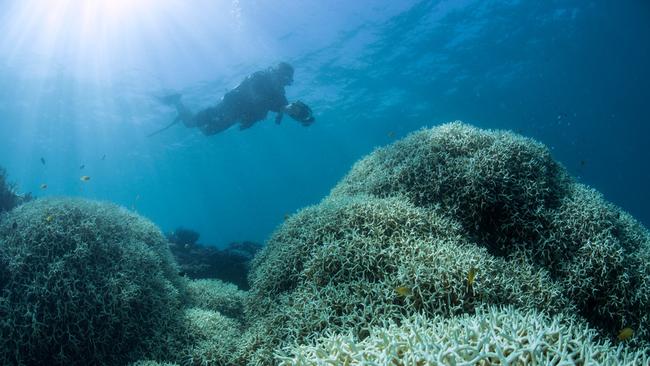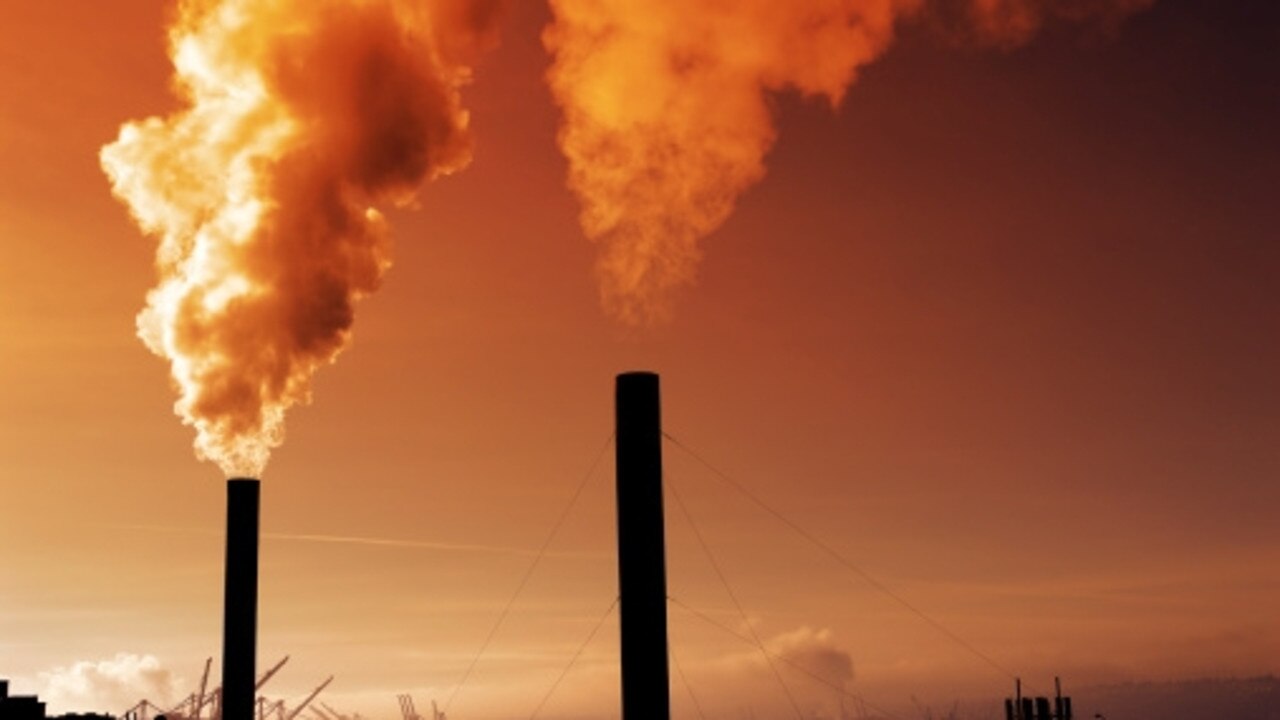Great Barrier Reef spared worst of coral bleaching wipe-out
The Great Barrier Reef’s most significant and healthy corals have escaped the longest global coral die-off on record.

The Great Barrier Reef’s most significant and healthy corals are on the frontline but have escaped the full force of what has been described as the longest global coral die-off on record.
Bob Halstead, a veteran Coral Sea diver and member of the international scuba hall of fame, alongside pioneers Jacques Cousteau and Sylvia Earle, said up to 90 per cent of corals on the Ribbon Reefs were showing signs of stress, but it was late in the season and affected corals were likely to recover quickly.
Mr Halstead has been diving in the Coral Sea off north Queensland and Papua New Guinea since 1977. Last week, he travelled from Cairns north to the Ribbon Reefs, which are among the most spectacular coral formations on the planet.
“I have experienced coral bleaching before ... so I am not looking at it with a novice’s eye,” Mr Halstead said. “I went out last week particularly to have a look because temperatures have been high and there is definitely signs of early bleaching.
“There were very few corals that were completely bleached and any that were bleached were only just. At the moment there is no sign than they are going to die.
“If you saw the signs we are seeing now in January, alarm bells would be going off. But this is mid to late March and it is a bit late, temperatures are starting to fall.
“My experience is that from paling events they (corals) recover very quickly within a few months once the temperatures get back to acceptable levels.”
Great Barrier Reef Marine Park Authority chairman Russel Reichelt said level three surveys, the highest response, were being undertaken due to increasing reports of coral dying.
Dr Reichelt flew over the northern reef with federal Environment Minister Greg Hunt on Sunday. He said there was extensive bleaching off the top half of Cape York. “The good news for us is the reports coming from James Cook Centre of Excellence, that the southern two-thirds of the reef appears to have withstood the hot summer we’ve had,” he said.
Mr Hunt said the Ribbon Reefs were in good condition but from Lizard Island north a more prominent bleaching event was evident.
In October, the US weather agency NOAA declared the third global bleaching event on record was under way. Scientists first observed the current global coral bleaching event beginning in mid-2014, when bleaching began in the western Pacific Ocean.
They said global warming and the El Nino weather pattern had prolonged what had been the “longest coral die-off on record”.
Mr Hunt told ABC radio he had been advised the situation on the Great Barrier Reef was not as severe as 1998 or 2002 but it was concerning. He said climate change and El Nino were to blame. Environment groups have mounted a campaign to link the coral bleaching with climate change and fossil fuels. The Greens said a level three bleaching event meant it was now a choice between “coral or coal”.
Greens deputy leader Larissa Waters said increased monitoring was important “but if we continue to open new coalmines, the monitoring results will only get worse”.





